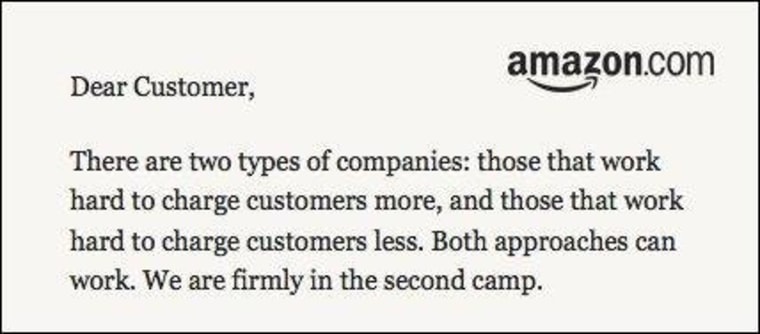Back in July, my friend Mac McClelland, Mother Jones' human rights reporter, went back to our native Ohio for a month to report on the growing crisis facing the working class in that state. While there, she visited a warehouse that handled the packaging and shipping of Internet purchases for an unnamed retailer. She remarked on the excessive heat inside and the fact that all of the employees were temporary (in the business and literal sense; she saw her host fire two people that day for "talking on the floor" and "excessive breaks"). All of this to increase expediency, because time is money.
She later found out why:
Susie told me it's pretty dispiriting to act as though her workers are as disposable as the products they're shipping. But that's just the way it is, she said. The logisticsclients aren't interested in spending money on a better or more sustainable work culture. Nor do they need to.
Last week, Mac recalled her story when coming upon Spencer Soper's similar reporting on an Amazon.com warehouse in Pennsylvania's Lehigh Valley. I could add more detail about what Soper describes, but that might discourage you from reading both in full. You should. Both his report and Mac's are significant not only because they describe the terrible conditions, harsh treatment and hasty terminations that the workers endure. They get to the heart of why these employees feel that they must endure it, and why companies perpetuate it:
The supply of temporary workers keeps Amazon's warehouse fully staffed without the expense of a permanent workforce that expects raises and good benefits. Using temporary employees in general also helps reduce the prospect that employees will organize a union that pushes for better treatment because the employees are in constant flux, labor experts say.
In his Bloomberg View column published last night, msnbc political analyst Ezra Klein likened what Soper describes to "The Grapes of Wrath":
When the family arrives in California, there’s no work. Just tents and hungry, hopeless people. A young man leaving the Hooverville they’ve just joined laughs ruefully at them: “They say they’s three hunderd thousan’ us folks here, an’ I bet ever dam’ fam’ly seen them han’bills.”“If they don’ need folks,” asks Tom Joad, “what’d they go to the trouble puttin’ them things out for?”“Look,” the young man says, “s’pose you got a job an’ work, an’ there’s just one fella wants the job. You got to pay im what he asts. But s’pose they’s a hunderd men. S’pose they’s a hunderd men wants that job. S’pose them men got kids, an’ them kids is hungry. S’pose a lousy dime’ll buy a box of mush for them kids. S’pose a nickel will buy at leas’ somepin for them kids. An’ you got a hunderd men. Jus’ offer ‘em a nickel -- why they’ll kill each other fightin’ for that nickel.”
When Amazon hawks its products by saying, "There are two types of companies: those that work hard to charge customers more, and those that work hard to charge customers less," think about who's really doing that work.
